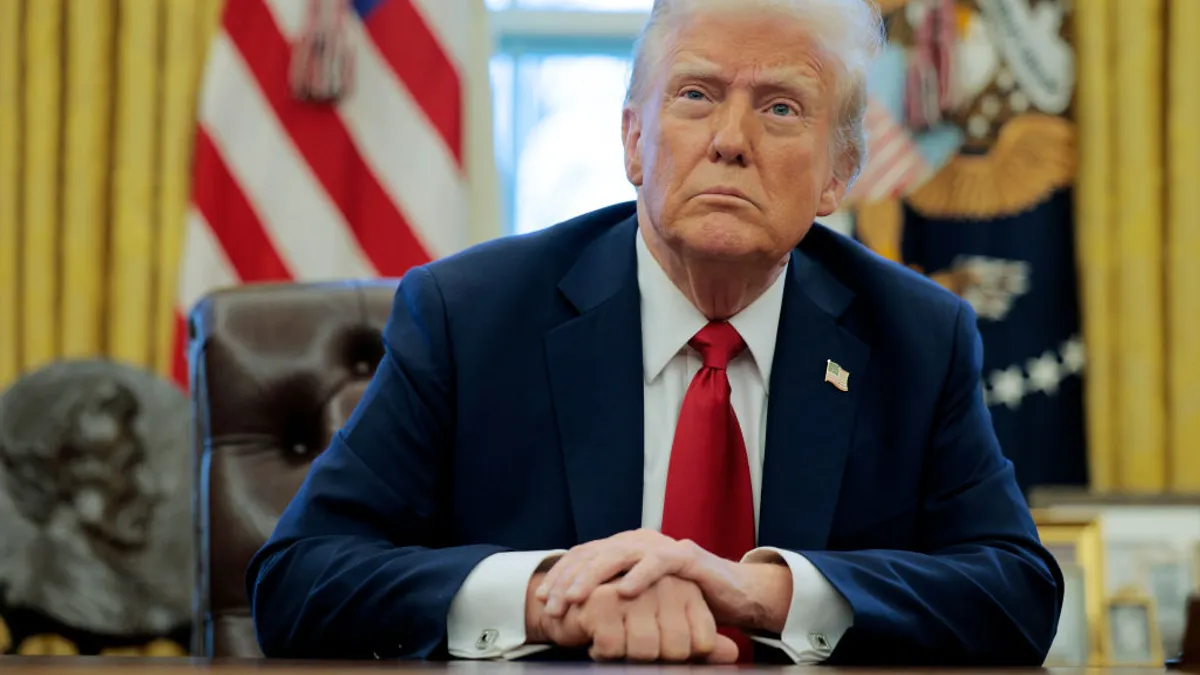Editor's Note: Angel Pérez is the CEO of the National Association for College Admission Counseling.
Our nation's future is at risk. While higher education has always been perceived as a great equalizer, our deeply entrenched social inequities have put college out of reach for too many Americans, inhibiting our country from truly prospering. If we don't take aggressive action in the wake of the crisis we confront in 2020, it will be difficult to recover from deep economic and social divides.
College admission officers are often blamed for not admitting enough poor and underrepresented students, but the truth is, the tools they are given to work with are deeply flawed. Testing, essays, recommendation letters, interviews and co-curricular activities are traditionally used in evaluation and often favor wealthy applicants. Even when admission officers want to admit more poor students, they simply can't. The higher education funding structure results in most colleges lacking the proper financial resources to admit as many disadvantaged students as they would like to while covering full financial need.
States and the federal government have increasingly made colleges and universities responsible for their own financial survival, which has forced institutions to charge ever-higher fees. When former President Lyndon Johnson signed the Higher Education Act into law in 1965, the intent was that money would never be an obstacle to obtaining a public, four-year education.
Since then, America's commitment to funding college students has steadily diminished. In the past four decades, the share of total education revenues from net student tuition dollars at public institutions has increased from 20.9% to 46%. Total federal loan volume has grown 356% in the last 30 years, from $20.4 million to $93.1 million. This has created an economic imbalance that tilts the playing field away from low-income, first-generation students.
This month, the National Association for College Admission Counseling (NACAC) released a report that envisions what the future of accessible, inclusive, equitable and affordable postsecondary education can and should look like and what we all need to do to make it happen. Our 14,000 members are admission officers and college counselors with a unique vantage point on the obstacles that keep too many students out of America's colleges and universities.
Maximizing the benefits of higher education starts with putting students back at the center of the system. Here's how it can be done.
We must reframe postsecondary education as a public good
In 1967, California Governor Ronald Reagan boldly proclaimed that the state's taxpayers should not subsidize "intellectual curiosity." He then cut state funding for public universities and created the tuition model. Other states followed suit, and our nation has never recovered. But when intellectual curiosity is cultivated, it creates the likes of Google, Berkshire Hathaway, transformative art like "Hamilton," and it may soon bring us a coronavirus vaccine.
Education beyond high school benefits all — the students who receive it and the society in which they live. Restoring our collective faith in the value of college requires reorienting government policy to reestablish a more robust higher education system. This includes a national movement to increase need-based financial aid and less reliance on student loans.
We must eliminate hurdles in college admission
Our admission and financial aid processes are complex, cumbersome and bureaucratic. Research shows that many students don't complete the process due to its navigational difficulty. To ensure the on-ramp to higher education becomes student-centric, our policies and actions must make the process easy to follow. Removing unnecessary barriers will require a fundamental reimagining of the entire college application process.
A recent NACAC task force report outlined the extensive costs, financial and otherwise, of taking standardized tests as one among many steps in the college admission process. In addition, the process of filing separate applications for each institution, procuring recommendations, writing essays — all contingent on finding a good fit college, which is a separate process in itself — amounts to an often impenetrable barrier, particularly for first-generation and low-income students.
We must change the prevailing image of college admission — and see it as every person's right
If data shows that postsecondary education gives individuals a better chance at prosperity, then it should be a human right. Not only will policymakers need to make this a priority, but colleges will need to realign their actions with inclusive values. This means emphasizing student-centered, ethical procedures and diversity at all levels — from the staffing of admission offices to the types of students they seek to enroll — and committing to examining and addressing the ways the institution limits opportunities. Institutions will need to place less emphasis on rankings and prestige, and more on student success.
We must vote
Everyone has a stake in the nation's educated citizenry. Parents want their children to prosper. Employers desire a prepared workforce, and every community wants prosperous residents contributing to a thriving tax base. We must use our vote to hold elected officials accountable for adequate postsecondary education funding.
Widening the pathways to higher education isn't a social justice movement, it's an economic imperative. If predictions about the future of work insist that postsecondary education is required for America to remain competitive, our nation must immediately change course.
















